July 16, 2025
The danger of “maximum pressure” vs. the promise of “pragmatic engagement.”
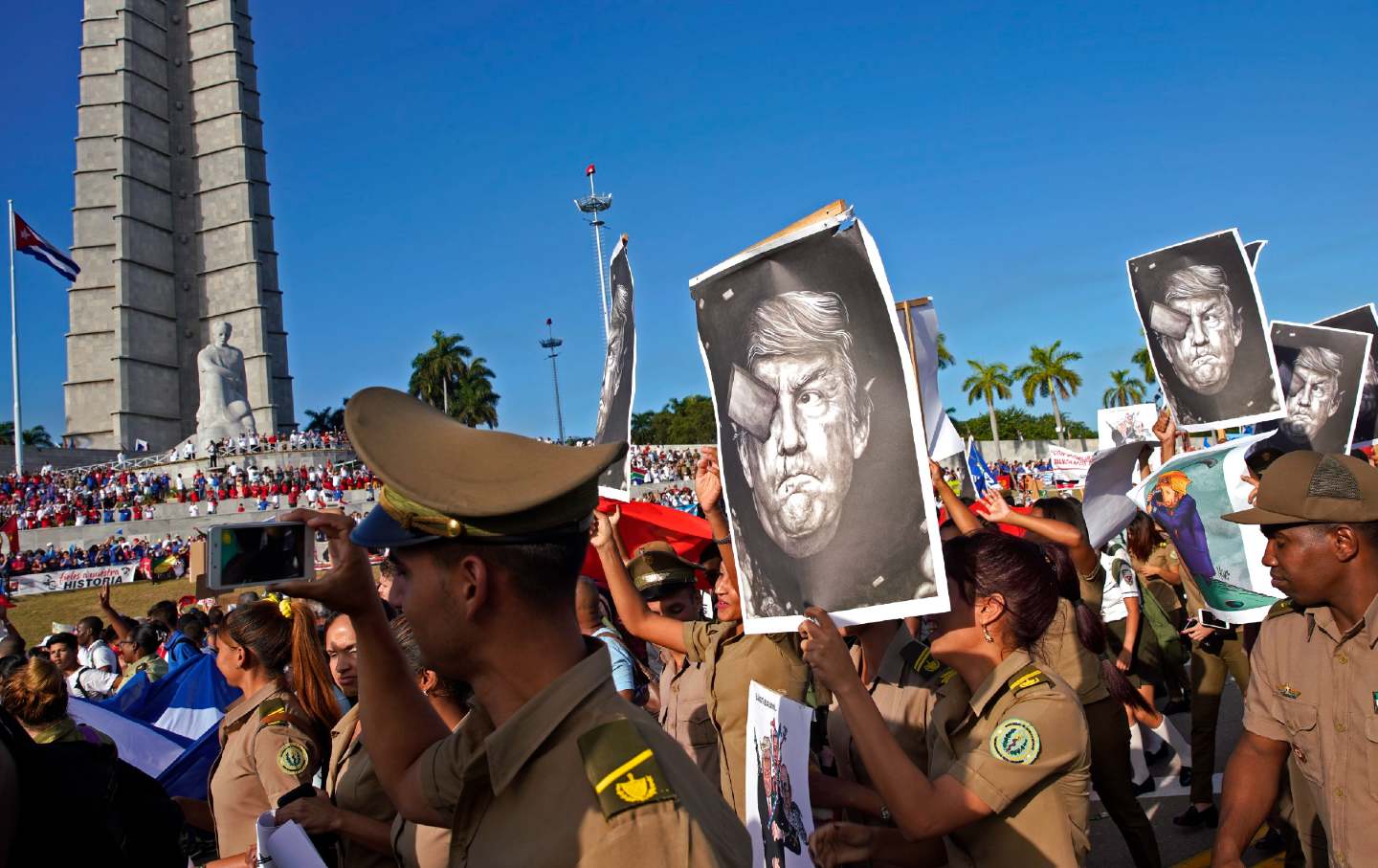
Since Donald Trump returned to the White House, expectations have been that his administration will use escalating sanctions to pursue regime change in Cuba—much as he did during his first term. With Marco Rubio, previously the hardest of hardliners in the US Senate, now serving as secretary of state—and doubling as national security adviser—the stage appears set for a return to a punitive policy of “maximum pressure” to push the teetering Cuban economy over the edge. “In 2019, the policy was maximum pressure, but we never got to maximum pressure,” Mauricio Claver-Carone, then Trump’s special envoy to Latin America, told a Miami audience in April. “And now we’re going to ramp up that pressure.”
On June 30, the Trump White House officially took the first step to “ramp up” a campaign of pressure” against Cuba—in the form of National Security Presidential Memorandum-5. The directive explicitly states that it is a “reissuance” of NSPM-5 from 2017—a word-for-word return to Trump’s policies from his first term—“on strengthening the policy of the United States toward Cuba,” with just two amendments (explained below). NSPM-5 reiterates restrictions on travel and commerce with Cuba, without explicitly expanding the restrictions that currently exist. But the directive also orders US agencies to revisit their regulations on travel and commerce with Cuba by the end of July—an indication that tighter restrictions and more punitive sanctions could be forthcoming later this summer.
Invoking the new directive, last week the State Department levied sanctions against Cuban President Miguel Díaz-Canel and two of his ministers, to mark the fourth anniversary of the July 11, 2021, protests in Cuba during the pandemic. The sanctions consist of permanently denying visas to the Cuban leaders—a meaningless penalty.
To understand the implications of NSPM-5, The Nation sat down with two Cuba specialists, William M. LeoGrande and Geoff Thale, who have co-authored a comprehensive new study, “US-Cuban Relations: A Realist Case for Pragmatic Engagement.” Their report, conducted for the Quincy Institute for Responsible Statecraft, asserts that the “national interest of the United States would be better served by resetting US policy toward Cuba, embarking on a path of engagement aimed at eventually normalizing relations.” In the following Q&A, LeoGrande and Thale critique Trump’s hostile Cuba policy—and offer an alternative course of engagement far more likely to serve the interests of the United States and the Cuban people.
—Peter Kornbluh
The Nation: On June 30, President Trump issued National Security Presidential Memorandum 5—setting the stage for his second-term Cuba policy. Except the directive is almost identical to the one he issued during his first term. What is Trump attempting to accomplish by reissuing a policy package that has largely remained in place since 2017?
William M. LeoGrande: The new NSPM is a reinstatement and reaffirmation of the sanctions package Trump announced in 2017 when he repudiated President Obama’s normalization policy. It signals a continuation of the policy of hostility but does not appear to dramatically increase sanctions. In some ways, it is less severe than the “maximum pressure” policy Trump imposed in 2019 under the influence of national security adviser John Bolton.
Current Issue

There appears to be a tug of war underway on Trump’s foreign policy team between pro-sanctions interventionists like Marco Rubio and MAGA skeptics who are wary of foreign entanglements. The “America First” faction would prefer to leave Cuba on the back burner by reaffirming the status quo rather than escalating US involvement. And that’s what NSPM-5 does.
But a lot will depend on the details of the new regulations implementing the policy, and nothing forecloses Trump from imposing new sanctions in the future, as he did in his first term.
Geoff Thale: Agreed. Reissuing NSPM 5 is more a gesture than a substantial shift in policy. Current sanctions already restrict most trade with Cuba, limit travel to the island, and put some pressure on foreign visitors and foreign investors. Issuing NSPM 5 allows the administration to talk tough on Cuba without doing anything new.
TN: The new NSPM is almost identical to the old NSPM, with just a few word changes. Can you explain the difference between them, and why the new language is important?
WML: There are two substantive changes in the new NSPM. First, it directs the State Department to update the so-called “Restricted Entities” list—an official list created by Trump during his first term of Cuban enterprises with which US citizens and companies are banned from doing business. And it expands the criteria of the list to include entities that operate “on behalf of” the Cuban armed forces, not just ones operated by the armed forces. The new list, along with a list of prohibited hotels, was released on July 11, but it simply adds seven new hotels to list—not a drastic change.
The other significant change in the new NSPM prohibits “indirect” as well as “direct” transactions with entities on the “Restricted” list. Presumably, an indirect transaction would be one that goes through some intermediary entity that is not listed.
GT: Adding the words “and indirect” might suggest that the administration could pursue what are called “secondary sanctions”—penalties against entities from other countries (such as Spain or Canada) that do business with Cuba. But the “Restricted Entities List” is a list of Cuban enterprises tied to the military with whom US citizens and companies cannot do business. It doesn’t apply to third-country entities, at least in its present form.
But secondary sanctions, if imposed, could be very damaging to the Cuban economy. They might force current foreign investors and trading partners to withdraw from Cuba, and they would certainly deter new investors, at a time when Cuba urgently needs hard currency and foreign investment. Though they might, ironically, offer new opportunities for Russian and Chinese investment as others withdraw.
TN: The NSPM orders US agencies to update their Cuba regulations within 30 days. We will likely know what those are by the beginning of August. What can we expect in terms of future restrictions on the right to travel for educational tours such as the ones The Nation leads to Cuba?
WML: Surprisingly, the NSPM appears to leave group people-to-people travel intact by spelling out the conditions under which it is licensed. Of course, Trump can always add new sanctions on travel, remittances, etc., as he did during his first term. But the new NSPM is more a reaffirmation of the status quo than it is an escalation of sanctions.
GT: Since the NSPM announcement, the administration has added seven hotels—including the Gran Aston in Havana where some educational tour groups have stayed—to the “prohibited” list. New regulations in the next month certainly could create more obstacles for travel. But, overall, the NSPM seems to preserve nonacademic educational travel, and travel to “support the Cuban people.” So significant new restrictions on travel seem unlikely.
TN: Trump has touted his Cuba policies as “maximum pressure.” But you are co-authors of a new, and extremely timely, policy study—“US-Cuban Relations: A Realist Case for Pragmatic Engagement”—that presents a cogent argument for a very different approach. What are the origins of this study? What is “pragmatic engagement”?
GT: You know, it became clear during the 2024 election season that national security arguments were the only compelling set of arguments that might motivate either a Democratic or a Republican administration to change course on Cuba. So in the summer of 2024 we pulled together a set of experts on Cuba policy with whom we could consult on recommendations for a new policy approach focused on national security. We did one-on-one interviews and drafted this policy paper around national interest arguments.
WML: In assessing foreign policy options, realists look first at the national interest, so we asked ourselves what policy toward Cuba would best advance a range of US interests. We focused on the priorities President Trump has voiced with regard to the Western Hemisphere: managing migration, containing the influence of US global rivals, halting the flow of narcotics, and securing access to strategic minerals.
A pragmatic engagement policy is one that adapts US objectives to our capabilities. In other words, what works? What can be done by the United States unilaterally, at low cost, with little downside risk, to advance our objectives. In the paper we argue that US objectives are more likely to be advanced by engaging with Cuba rather than by maintaining a policy of sanctions and hostility, which hasn’t advanced US interests despite being in place for more than 60 years.
GT: President Trump’s foreign policy has focused on defending US national interests, and US security. In Latin America, in particular, that policy has focused on migration issues, on limiting the influence of China and Russia, and on drug policy. We argue that these US interests would be more effectively advanced by engaging with Cuba than by maintaining or further tightening our embargo.
An example: Cuba’s weakened economy has led to a wave of migration; hardening our border can slow that wave but not stop it. And tightening the screws on the Cuban economy will only contribute to migration pressures. The Trump administration has suspended dialogue with Cuba on migration issues, making migration management even harder. Reengaging with Cuba on migration talks, and steps to ease economic pressures that drive migration (especially steps that might help the Cuban private sector) would serve our national interest more effectively than a policy of maximum pressure would.
TN: Cuba is already in a dire economic situation. What are the humanitarian consequences of further destabilizing Cuba economically?
WML: US sanctions have played a major role in the current humanitarian crisis on the island, along with the Covid pandemic and policy mistakes by the Cuban government. More intense sanctions mean a deeper crisis, increasing pressures for emigration, reducing the Cuban government’s capacity to cooperate on issues of mutual interest like narcotics interdiction, and opening the door to China and Russia as they come to Cuba’s aid. None of these outcomes serve US interests.
GT: Food shortages and malnutrition are already issues in Cuba, and the country is receiving aid from the World Food Program. Energy shortage means frequent blackouts. The healthcare system is struggling to provide basic services. Tightening the US embargo further, through secondary sanctions or other measures, is going to increase hunger and human suffering, decrease hope, and drive further migration.
Popular
“swipe left below to view more authors”Swipe →
TN: Given the dire situation on the island, what are the next steps that a prudent and “pragmatic” US policy should take?
GT: First, we can help the Cuban economy and the private sector there by taking Cuba off the list of “State Sponsors of Terror.” This inaccurate designation deters foreign businesses, banks, and governments from interacting with Cuba, and makes it much harder for the private sector to carry out international financial transactions. We should permit what’s called “correspondent banking,” so that private businesses in Cuba have the ability to open US bank accounts and operate in regular banking channels. We should let US investors, and that means mostly Cuban Americans, invest in private and cooperative businesses in Cuba. All of those are easy measures that would help the Cuban economy and the private sector and ease the pressures that drive migration. Obviously, we should make it easier for humanitarian aid groups to send food, medicine, and other supplies without the restrictions and red tape that currently exist.
These are all first steps. We need to be realistic and recognize that they won’t transform Cuba, or US-Cuban relations overnight. But they would set us on a path that serves US national and security interests.
WML: We should engage! That is the basic lesson of the Obama–Raul Castro breakthrough to normalize relations in December 2014 which successfully advanced US interests before Trump reverted to a policy of perpetual hostility.
Engagement is possible and productive. During the two years that Obama’s policy was in place, the United States and Cuba reestablished diplomatic relations and signed 22 bilateral cooperation agreements on issues of mutual interest. Educational and cultural exchanges and travel flourished, enriching both countries. New economic links were established. Cuban and Cuban American families were reunited. And the two governments for the first time opened diplomatic discussions about tough issues like human rights and property claims.
Engagement is popular. United States allies around the world cheered Obama’s policy, especially in Latin America. Opinion in the United States was overwhelmingly positive, even among Republicans. By the end of the Obama administration, even the majority of Cuban Americans in Miami favored lifting the embargo.
Engagement is unavoidable. Cuba is only 90 miles away and it’s not going anywhere. Over the years, even Republican presidents have learned that there are some problems Washington cannot solve unilaterally. That realization led almost all of them to engage diplomatically with Cuba on one issue of another, almost always with positive results. Only Obama had the courage to attempt full normalization, and he made more progress in two years than all his predecessors and successors collectively have made in more than half a century.
More from The Nation
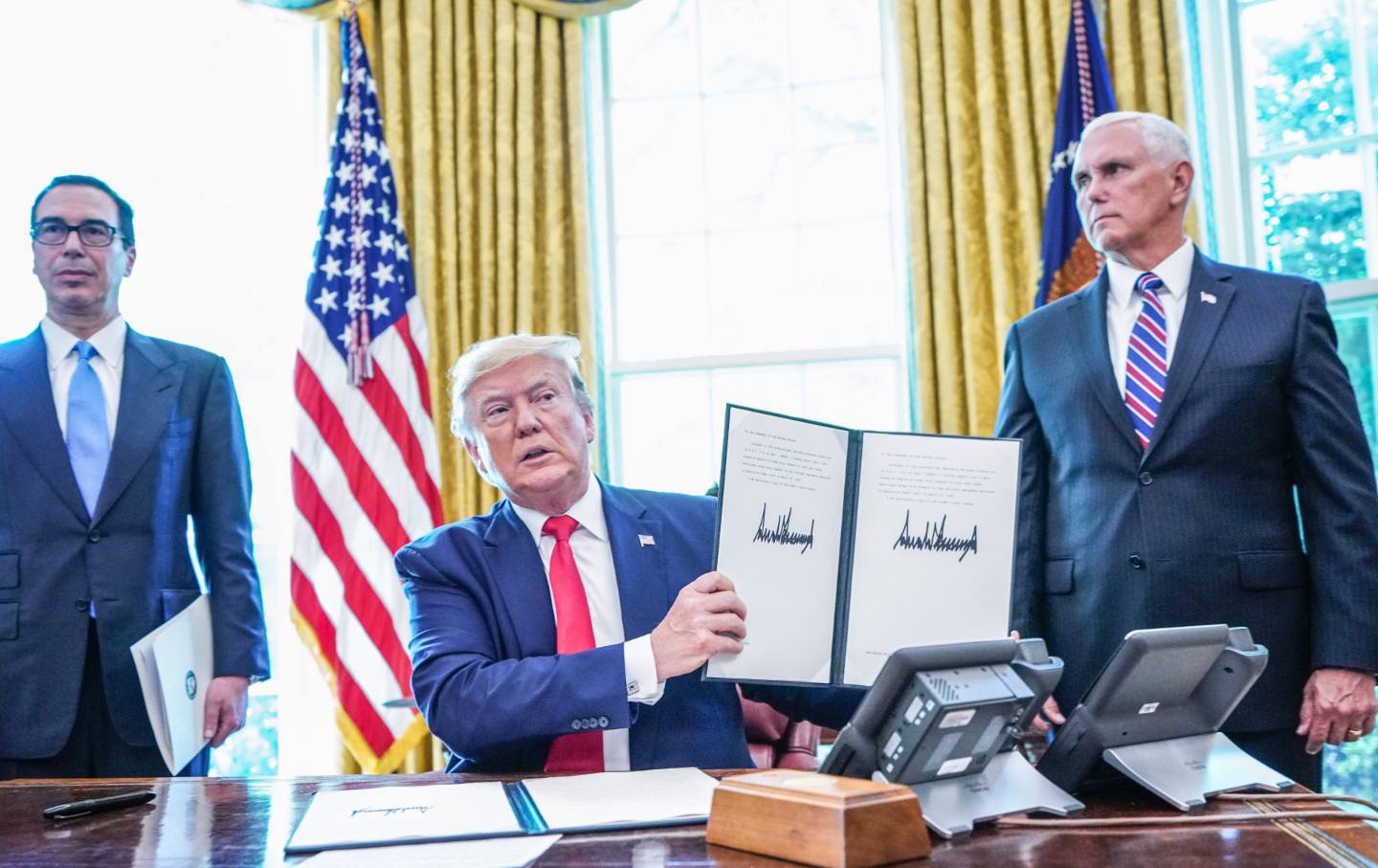
Since 1979, the US has been in perpetual economic, military, and political combat with the Iranian state. The only difference now is that bombs are falling.
Josef Burton
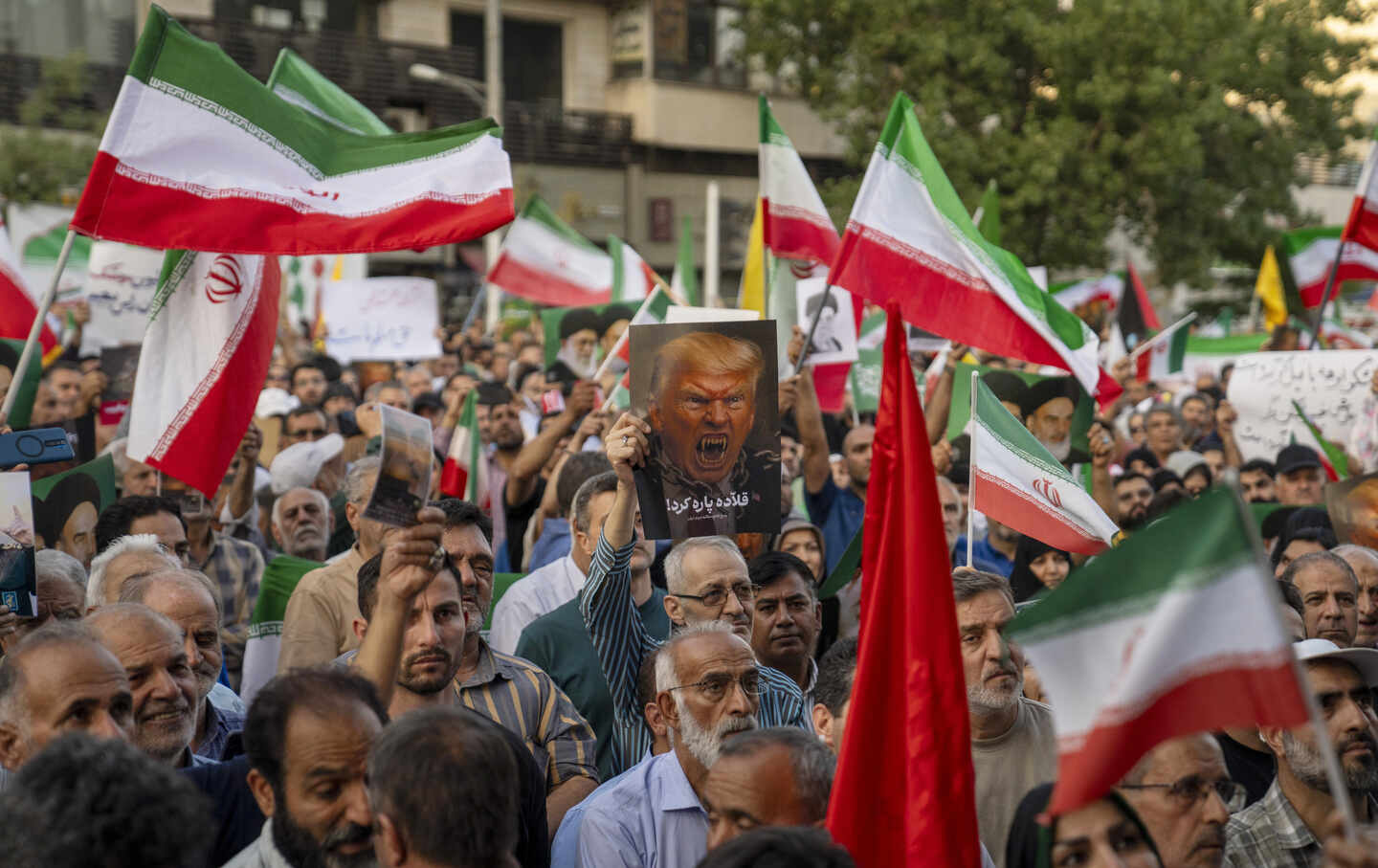
Imperfect as they were, our founding fathers asserted that liberty and human dignity are fundamental human values. A war with Iran repudiates them.
Nader Terani
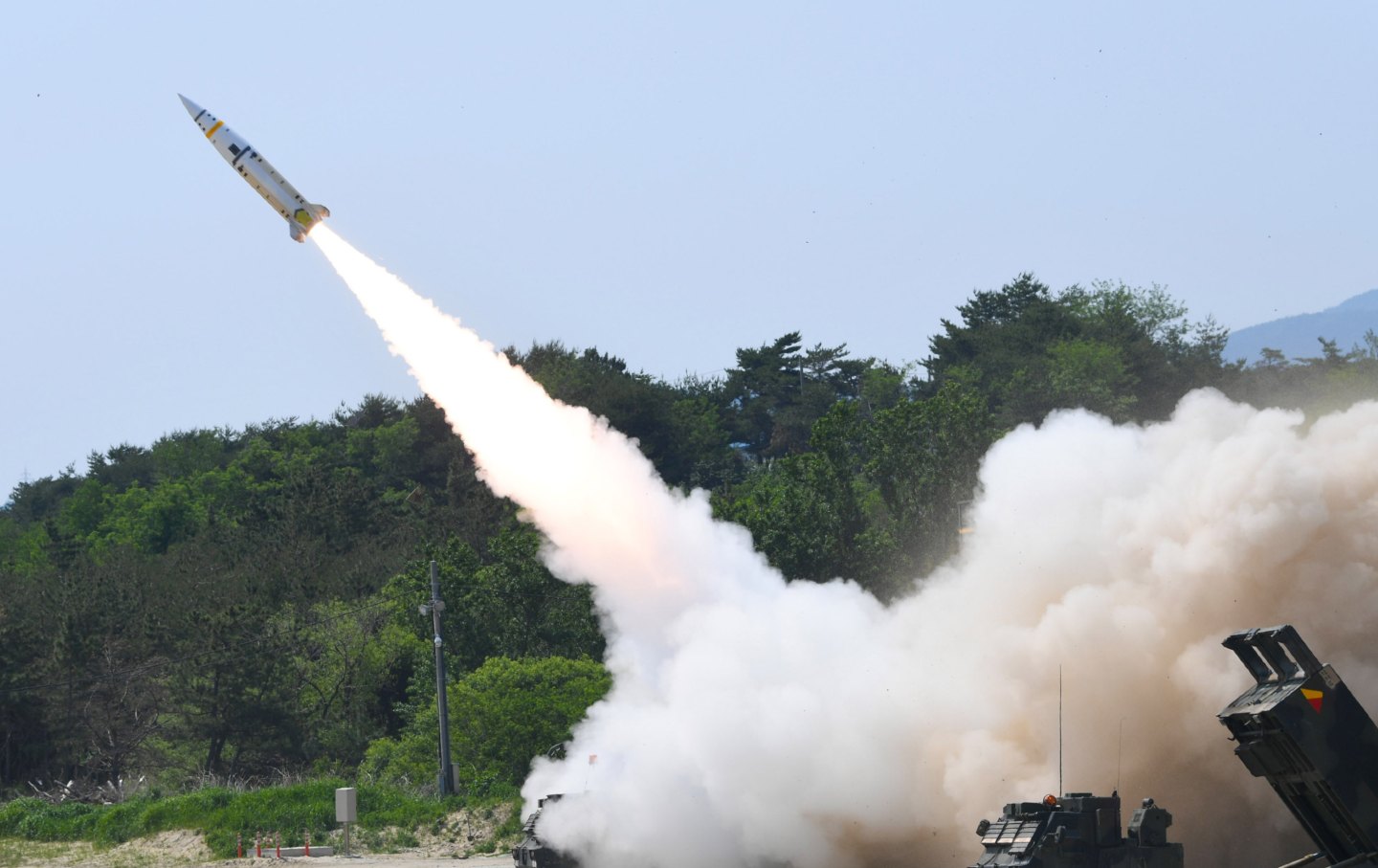
Yet mainstream US media outlets and partisan politics are routinely oblivious to threat of oblivion.
Norman Solomon
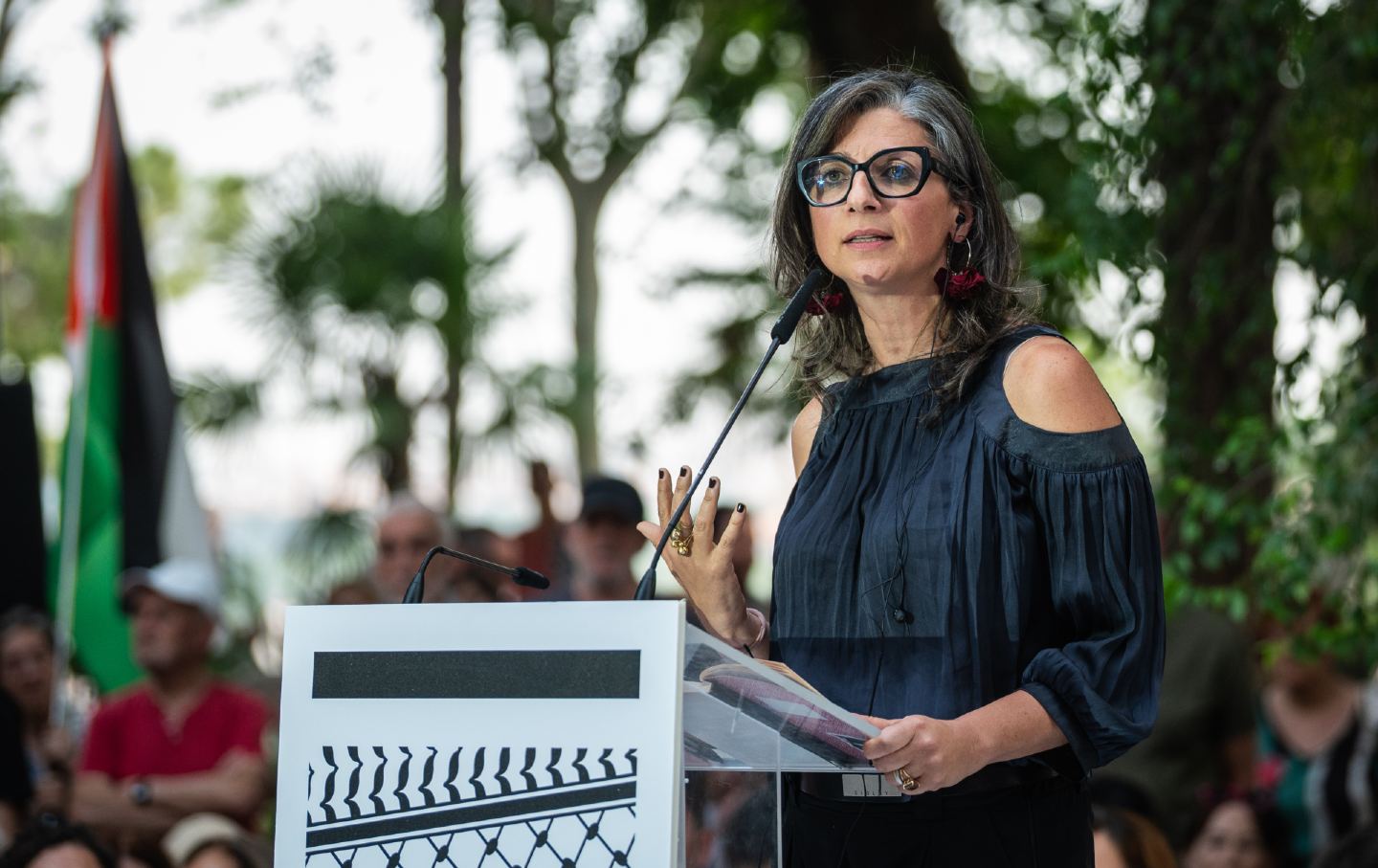
Marco Rubio tramples on law, justice, and truth.
Richard Falk

What was true before is still true now: There is no military solution to this conflict. Only diplomacy and a commitment to peace will work.
Hillel Schenker


